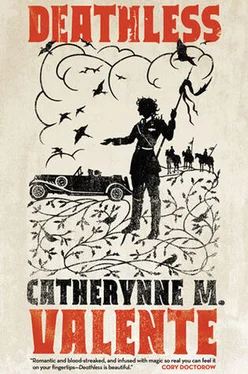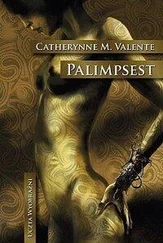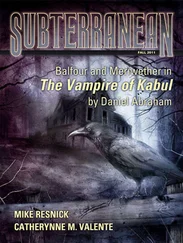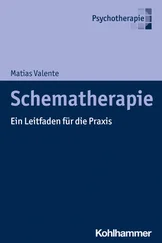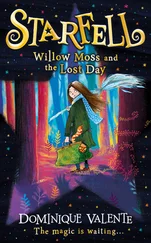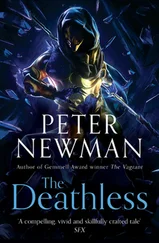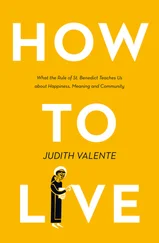“Yes, she’s very clever.”
As if recognizing her cue, Sofiya threw her hands up and squawked, “Water!” And giggled riotously.
“Yes, rybka, my little fish! It’s time for water.” Kseniya twisted her hands.
“We are modest,” she added, awkwardly.
“I shall turn my eyes if it will help. I am chilled, still. But why are you bathing at this time of night? You’ll chase your death in your sleep.”
The young nurse sighed heavily, untwisting her long braid and loosening her dark hair, slightly damp. “I have … a condition. My daughter has it, too. We become … ill, when our skin dries out. Our hair. It is especially dangerous at night. Pillows drink up so much water. For myself I wouldn’t even get out the kettle, but my little fish can’t bear the faucet.”
Marya Morevna laid her head on her shoulder, watching the nursing student with a crow’s interest. Rusalka were like that, she knew from long experience. They fall down dead if they dry out. In Buyan, the rusalki kept a great glass-ceilinged natatorium full of clear blue pools and hot saunas, so they could stay in the city overnight. At home, in their lakes, they never worried—a quick swim and they shone, sang, drowned their lovers with abandon and cheer. But too far from the green, grassy depths of mountain waters, they fell prey to a wide variety of arcane personal rituals, all of them necessary to keep a rusalka alive from day to day.
“I knew someone once, who had a condition like yours,” Marya said slowly. She could not be sure; she did not dare call the young woman out.
Kseniya Yefremovna fixed her with a deep, unwavering gaze. “I am not surprised that you did, Comrade Morevna.”
In the silence of the kitchen, broken only by the settling of blackened wood chips in the stove, Marya helped Kseniya to fill a little tub and sink her long hair into it. She stroked the young woman’s curls, making sure every strand got soaked through. Impulsively, she kissed the young woman’s damp forehead.
In the morning, they did not speak of it.
* * *
Was she happy? Did she think of Koschei? She saw herself from a long way off, moving as though through water. Little things brought her singing down into herself again: the smell of cherries rotting on the ground outside her window; the crackle of the radio, which always startled her; the sharp sear of the vinegar Kseniya used to preserve half the eggs, mushrooms, and cabbage that she brought in from the market. Kseniya was better at being alive than Marya. Marya accepted that difference, and only once a day, at dusk, did she look beyond her friend’s moist shoulder, expecting to see Naganya clicking her jaw disapprovingly in the corner. But she saw nothing; they hadn’t followed her, or were content to remain unseen. Marya did not know which she preferred.
And then, Ivan, always Ivan, the motion of him within her, the ways in which she could force him to bend to her will, the getting of small items, a comb, a cup of water. She clung to him, for if she clung to him, then leaving Buyan could be right, could be right forever. He did not speak of his work. She did not ask him what he did when he left her. Ivan Nikolayevich did not seem to have much of an idea what to do with her, now that she had come to Leningrad, done as he asked. I can get you a job, Mashenka. Wouldn’t you like to work? Wouldn’t you like to have comrades? But she would not like that. She wanted only to rest and to read her old, rain-swollen books, turning the pages carefully, so carefully.
“Ivanushka,” she asked one night as the jingling street sounds played below the window. “Would you perform tasks for me, if I asked?”
“What do you mean?”
“Would you … get me a firebird’s feather, or fetch a ring from the bottom of the sea, or steal gold from a dragon?”
Ivan pursed his lips. “Those sorts of things are so old-fashioned, Masha. They are part of your old life, and the old life of Russia, too. We have no need of them now. The Revolution swept all the dark corners of the world away. Yes, remnants still lurk in the hinterlands—Koschei, a Gamayun or two. But they are irrelevant. The old world left its dirty, broken toys lying about. But soon enough we’ll have everything tidy. Besides, there are no firebirds in Leningrad.”
Marya Morevna turned her back to him, and he kissed her shoulder blades.
The main thing was the tiredness, which swaddled her and stayed. The main thing was the ruin of her house, like film laid on top of other film, so that she could look at a wall and see not only the wall but Svetlana Tikhonovna and her mother arguing over laundry in front of it, and Zemlehyed pawing at it, and the skin of a Buyan wall, so far from her. Everywhere her vision doubled and trebled, and her head sagged with the weight of it. Everything kept occurring all at once, each thing on top of the last.
Was she happy? Did she think of Koschei?
She thought of mushrooms, and vinegar, and old wounds.
* * *
At last, after a year had come gone in the house on Dzerzhinskaya Street, Marya sat on her bed by the long, thin window. She looked up at the red dress hanging there. It had a deep neckline, and a full skirt. A young woman’s dress.
“What is thirty-three?” she said to the empty house. “A crypt?”
And so she put on the dress, and let her black hair fall down to her waist. She took some of Kseniya’s lipstick—she would not mind, not with so many classes this term. Marya had gotten better at applying it, and her mouth shone neatly. Marya Morevna walked down the stairs and put her palm to the knob of the great cherrywood door. She would go down to the river, and have an ice cream of her own, and someone would dance with her at a piano hall, without even knowing her name. Outside, she could smell the summer acacia, blooming early this year, in the long half-golden dusk that passed for night in Leningrad’s June. A young man played a violin a little ways off, singing boldly: W e’ll meet again in Lvov, my love and I …
Marya Morevna turned the knob and opened her door onto the city. She stood there in her bright red dress, and her face drained of blood. A man looked down at her, for he was quite tall. He wore a black coat, though the evening’s warm wind blew through his curly dark hair, so like a ram’s. Slowly, without taking his eyes from hers, the man in the black coat knelt before her.
“I have come for the girl in the window,” he said, and his eyes filled with tears.
21
This House Has No Basement
Ivanushka, you must make me a promise.
Anything, wife.
* * *
A pure kind of light fell like cold hammer-blows on Dzerzhinskaya Street the next day. Morning passed, but the light kept its quality. Waxen, hard, merciless. A young woman with a pale blue band around her hat knocked crisply at the great cherrywood door. She had never been a bird—not a rook, nor a shrike, nor a plover, nor an owl. Her crisp features matched the morning, pitiless and sharp. She knocked again.
* * *
Ivanushka, no matter how strange it seems, you must obey me.
Always, wife.
* * *
The man in the black coat held up one hand to her, as if he could not believe she was real. “I look at you, Masha, and it is like drinking cold water. I look at you and it is like my throat being cut.”
“Get off your knees.” Her chest hurt. She felt old, and the wind off the river smelled sweet, but impossible.
“I do not tolerate a world emptied of you. I have tried. For a year I have called every black tree Marya Morevna; I have looked for your face in the patterns of the ice. In the dark, I have pored over the loss of you like pale gold.”
Читать дальше
